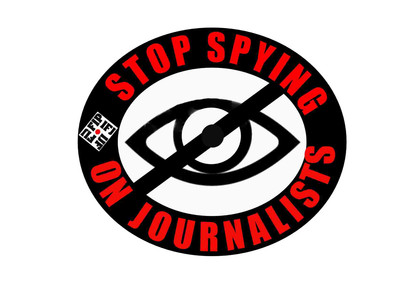The investigation started on October 2022, after Domani published articles outlining a conflict of interest concerning Italy's Defence Minister Guido Crosetto. We revealed that for years, before being appointed minister, he was paid by the arm industry as an advisor. The minister has never denied the information we published. Yet, he filed a complaint to the Italian judicial authorities with the aim of identifying our alleged source.
Following its adoption by the European institutions, the European Media Freedom Act (EMFA) aims to strengthen the protection of journalistic sources and strictly regulate the possibility for the judiciary to investigate these sources, under the guidance of an independent judge, and only in the context of investigations into a limited number of crimes.
In a complete break with the spirit of the EMFA, the decision by the Perugia prosecutor's office to prosecute our reporters to identify their sources risks criminalising journalism.
What is happening to Domani has already been stigmatized by the main journalists' trade unions and by organizations such as Federazione Nazionale della Stampa Italiana (FNSI), Media Freedom Rapid Response (MFRR), European Centre for Press and Media Freedom (ECPMF), European Federation of Journalist (EFJ), Free Press Unlimited (FPU), International Press Institute (IPI), ARTICLE 19 Europe and OBC Transeuropa.
Without the possibility of verifying pieces of news, and without sources leaking secret information, investigative journalism would be hugely limited. Likewise, the freedom of the press would be limited, to the detriment of the public’s right to be informed about news of public interest that political and economic power tries to hide.
We fear that the current investigation on the reporters represents an attempt to breach the confidentiality of journalistic sources, and to silence our investigative reporting on members of the current government.
It is not the first time that members of the current Italian government act against Domani and other Italian media: SLAPPs, claims for damages and intimidations are becoming more and more frequent in our country. With this call for support, we ask the Italian judicial and political authorities to respect the right to report, the freedom of the press and the public’s right to have independent media.
SIGNATORIES
INTERNATIONAL ORGANIZATIONS
- Amnesty International Italia
- ARTICLE 19
- Association of European Journalists (AEJ)
- Bulgarian Investigative Journalism Centre
- Civic Initiatives (Serbia)
- Coalition For Women In Journalism (CFWIJ)
- Committee to Protect Journalists (CPJ)
- Daphne Caruana Galizia Foundation
- Deutsche Journalistinnen- und Journalisten-Union (dju) in ver.di
- DİSK Basın-İş (Turkish Press and Printing Employees Union)
- Dutch Association of Journalists (NVJ)
- European Centre for Press & Media Freedom (ECMPF)
- European Federation of Journalists (EFJ)
- Federación de Asociaciones de Periodistas de España (FAPE)
- Federazione Nazionale Stampa Italiana (FNSI)
- Foundation Atelier for Community Transformation (ACT)
- Free Press Unlimited (FPU)
- GCD (The Turkish Association of Journalists)
- Greenpeace Italia
- Human Rights Center Ghent University – Dirk Voorhoof, professor emeritus, Freedom of Expression
- Index on Censorship
- Independent Journalists’ Association of Serbia (IJAS)
- International Federation of Journalists (IFJ)
- International News Safety Institute (INSI)
- International Press Institute (IPI)
- Irish PEN / PEN na hÉireann (Catherine Dunne, chair, writer)
- Justice for Journalists (JFJ)
- Libera Informazione
- OBC Transeuropa
- Pištaljka (The Whistle)
- PEN International
- RECLAIM
- Reporters Without Borders (RSF)
- Peace Institute (Ljubljana)
- Society of Journalists (Warsaw)
- South East Europe Media Organisation (SEEMO)
- Statewatch
- The Good Lobby (Italia)
- The Turkish Association of Journalists (GCD)
- Trade Union of Croatian Journalist (TUCJ)
MEDIA OUTLETS
- Are we Europe
- Balkan Insight
- Dagospia – Roberto D'Agostino, editor in chief
- Daraj – Alia Ibrahim, co-founder
- Defapt.ro - Cătălin Prisăcariu, co-founder
- Delfi Estonia – Urmo Soonvald, editor in chief
- Deník Referendum – Jakub Patočka, editor in chief
- Disclose – Ariane Lavrilleux, reporter and press freedom defender
- elDiario.es
- Environmental Investigative Forum (EIF)
- European Investigative Collaborations (EIC) - Stefan Candea, co-founder and coordinator
- Expresso - David Dinis, editor in chief
- Gazeta Wyborcza
- HVG
- InfoLibre - Daniel Basteiro, editor in chief; Jesús Maraña, editorial director
- Internazionale – Giovanni De Mauro, editor in chief
- Investigate Europe – Alessia Cerantola, editorial director
- IrpiMedia – Lorenzo Bagnoli, co-editor in chief
- L’Espresso – Enrico Bellavia, editor in chief
- Le Soir - Christophe Berti, editor in chief
- Libération - Dov Alfon, editor in chief
- Lighthouse Reports - Daniel Howden, founder and director
- Magyar Hang - György Zsombor, editor in chief
- Mediapart - Carine Fouteau, president and publishing editor
- Nacional - Berislav Jelinic, editor in chief
- Petrolio – Duilio Giammaria and the news desk
- Piazzapulita – Corrado Formigli and the news desk
- Presadiretta – Riccardo Iacona and the news desk
- Politiken - Amalie Kestler, editor in chief
- Radio anch’io – Giorgio Zanchini
- Report – Sigfrido Ranucci and the news desk
- Reporters United - Nikolas Leontopoulos, co-founder
- Shomrim - Eyal Abrahamii, editor in chief
- SourceMaterial – Leigh Baldwin, editor in chief
- The Insider – Roman Dobrokhotov, editor in chief
- TPI (The Post Internazionale) – Giulio Gambino, editor in chief
- VG - Gard Steiro, editor in chief
- Voxeurop


